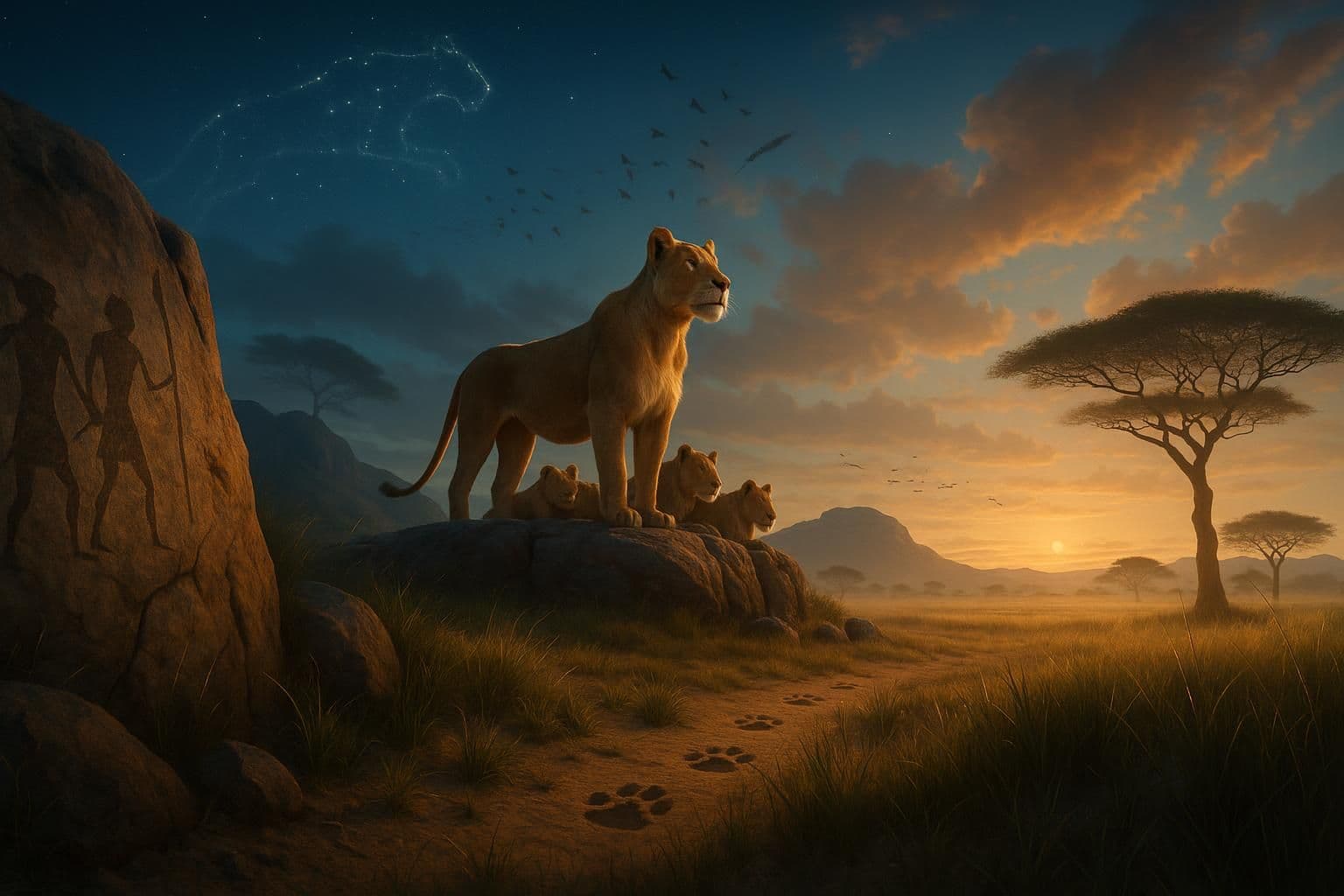Rewriting the Hunt: Voices of the Lions

Until the lions have their historians, the history of the hunt will always glorify the hunter. — Chinua Achebe
—What lingers after this line?
One-minute reflection
What feeling does this quote bring up for you?
Narrative Power and the Hunt
Achebe’s image of the hunt distills a hard truth: stories follow power. Those who survive and rule—hunters—shape the version of events that becomes public memory, while the experience of the hunted—lions—fades into rumor or silence. Consequently, what we accept as history often reflects access to pens, presses, and institutions more than an even-handed reckoning with the past. By foregrounding this asymmetry, the proverb invites us to ask not only what happened, but who was allowed to speak about it—and why.
Achebe’s Provocation and Its Roots
Building on an African proverb, Chinua Achebe made the point concrete in both criticism and fiction. His novel Things Fall Apart (1958) rewrites colonial encounter from within Igbo life, shifting the camera away from the hunter’s gaze. Likewise, “An Image of Africa” (1977) exposes how Conrad’s Heart of Darkness marginalizes African interiority, turning people into scenery. Through these works, Achebe doesn’t merely add a footnote to empire; he re-centers the narrative, showing how dignity and complexity return once lions have historians.
Archives, Empire, and Structured Silences
Extending this insight, postcolonial thinkers argued that the archive itself can be a hunting ground. Edward Said’s Orientalism (1978) demonstrates how scholarly and cultural systems cast the East as an object to be mastered. Gayatri Spivak’s “Can the Subaltern Speak?” (1988) asks whether those at the margins can be heard within frameworks built to exclude them. Missionary journals, colonial courts, and ethnographies—however meticulous—often encoded the hunter’s priorities, making absence look like consent. Thus, the challenge is not only to add voices, but to question the scaffolding that muted them.
When Lions Write Back: Counter-Histories
History changes when the hunted narrate. Caroline Elkins’s Imperial Reckoning (2005) reinterprets the Mau Mau uprising by unearthing testimonies and hidden archives, recasting ‘terrorists’ as victims of systematic abuse. Similarly, Dee Brown’s Bury My Heart at Wounded Knee (1970) relocates the vantage point to Native nations, altering the moral geometry of the American West. In a different register, Howard Zinn’s A People’s History of the United States (1980) assembles laborers, enslaved people, and dissenters into the main plot. In each case, new historians for the lions change not only conclusions, but the very questions asked.
Oral Traditions as Living Archives
Moreover, the lions have long kept memory outside of books. West African griots safeguard genealogies and epics—such as the tale of Sundiata—through performance, embedding history in community. As Amadou Hampâté Bâ told UNESCO (1960), “When an old man dies, a library burns,” reminding us that authority also resides in memory, cadence, and witness. When oral testimony is triangulated with archaeology and written records, the hunt’s panorama widens, revealing motives, meanings, and textures that paper alone misses.
From Newsrooms to Algorithms: Today’s Hunts
Turning to the present, media infrastructures still tilt toward the hunter. Gatekeeping in newsrooms, unequal access to platforms, and algorithmic amplification can privilege dominant narratives. Wikipedia edit wars and content moderation controversies illustrate how visibility is negotiated, not given. Yet the same tools can empower lions: community archives, citizen journalism, and open datasets let marginalized groups document harm and joy on their own terms. The task, then, is to design systems where the cost of speaking—and the risk of being erased—no longer falls on the hunted.
Toward Shared Histories and Just Memory
Finally, giving lions historians is an ethical practice, not a slogan. Participatory research, multilingual archives, equitable citation, and reparative access policies shift authority toward those historically narrated by others. Classroom curricula that pair official documents with oral histories, novels, and community records teach students to read for power as well as fact. When we build such habits, the history of the hunt becomes less a eulogy for the hunter and more a shared account of the forest—where every voice can name what it has seen.